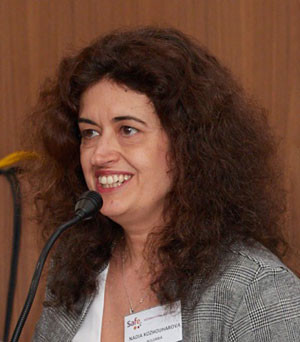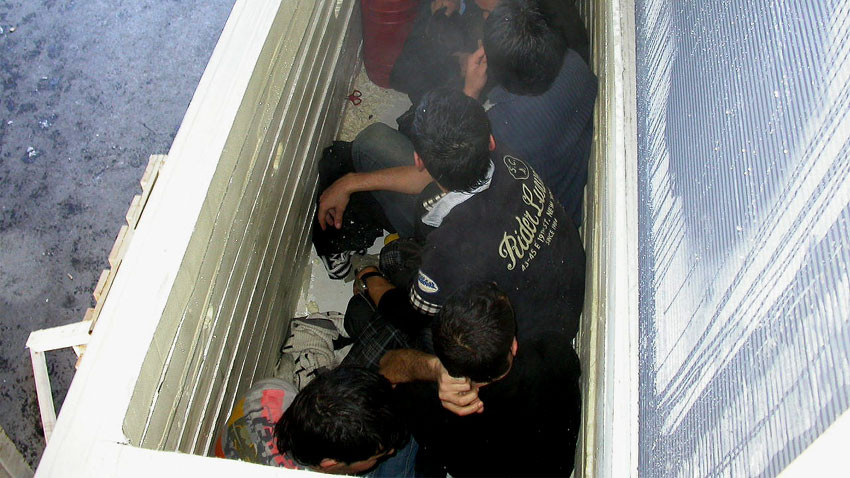People are increasingly referring to human trafficking to as "modern slavery". On the eve of the European Anti-Trafficking Day (October 18th), the UN pointed out with concern that the growing exploitation, especially among migrants, refugees and asylum seekers, has already deeply integrated into the world economy and labor market.
When a person is forced to exercise a type of activity despite their will through threats, cruelty or deceit in favor of the abuser, we are talking about trafficking or exploitation of people. The phenomenon has been spreading in various directions - prostitution, low-skilled labor, sale of babies and organs, beggary and pickpocketing.
Sadly, Bulgarians often fall into this trap because of labor migration. Workers mostly find jobs in construction, restaurants, agriculture, and as home aid. According to the Animus Association, everyone is at risk of finding themselves in a similar situation - a social experiment involving fraudulent advertising of a job abroad has proven this fact.
 “The ad claimed a Danish company was recruiting workers to ‘collect green caviar’ (Bulgarian expression for deceit, implying to be sent to gather something that does not exist),” Nadia Kozhuharova, an expert in the Association says. “In a very short time, over 150 people called and these were not people with low education. There were people who had traveled abroad and who knew foreign languages. This means that in seeking a job abroad at any price, one can very easily become a victim of exploitation or trafficking in human beings.”
“The ad claimed a Danish company was recruiting workers to ‘collect green caviar’ (Bulgarian expression for deceit, implying to be sent to gather something that does not exist),” Nadia Kozhuharova, an expert in the Association says. “In a very short time, over 150 people called and these were not people with low education. There were people who had traveled abroad and who knew foreign languages. This means that in seeking a job abroad at any price, one can very easily become a victim of exploitation or trafficking in human beings.”
According to Nadya Kozhuharova, there are people in Bulgaria convicted for trafficking in human beings, but the cases are few and sentences are not severe. One of the reasons is that victims do not always agree to speak about the violence they suffered.
“Victims refuse to testify because they feel much weaker than the perpetrators of the crime, who are usually part of large networks or are rich people with experienced lawyers, ”Nadia Kozhuharova says. "But if the victims were provided with equally motivated defenders for free, they would be in a different position. Moreover, the whole procedure is painful, especially in the case of sexual exploitation. In the courtroom, the victim has to prove what happened to them, while the accused tries to deny in any possible way – including by saying the victim was willingly involved in a given situation.”
Unlike the situation in Bulgaria, the judicial system in Europe is much more prepared and the victims tend to testify because they know that their case has a chance to end with a good result - material or moral compensation, in the form of a severe sentence, Nadia Kozhuharova says. In Bulgaria, in theory, significant sums can be received as compensation, but de facto these sums remain unpaid because the perpetrators had transferred ownership of their property to a different person.

“The question is to what extent the court is willing to protect the interests of the victim, as here we are much more focused on the punishment of the perpetrator, and forget about the victim. The victim is a witness during long criminal proceedings but has no substantial benefit in the long run. However, victims had brought great profits for their exploiters and have the right to receive some of this money, if not all of them. Unfortunately, trials often pass under a quick procedure framework and attempts are made for reaching agreements. But we cannot really fight this crime if there are no serious punishments.”
Recently, Maria Grazia Giammarinaro, UN Special Rapporteur on Trafficking in Persons, was a special guest to Bulgaria and said the phenomenon has grown so much that it was part of the development of world economy. She has called for very strict measures to be taken in such cases.
English: Alexander Markov
Photos: BGNES
A little over 1,450 Leva is the sum needed per month by an individual living in a one-person household, and a total of 2,616 Leva for the monthly upkeep of a three-member household - as is the most widespread model in Bulgaria at the moment (two..
The traditional "Easter Workshop" will be held from April 23 to 26 in the Ethnographic Exposition of the Regional History Museum - Pazardzhik. Specialists from the ethnographic department of the museum will demonstrate traditional techniques and..
In response to a listener's question, in a series of publications Radio Bulgaria presents to its multilingual audience the types of documents giving the right to reside and work in Bulgaria to foreign citizens of third countries . In the..
In response to a listener's question, in a series of publications Radio Bulgaria presents to its multilingual audience the types of documents giving the..
A little over 1,450 Leva is the sum needed per month by an individual living in a one-person household, and a total of 2,616 Leva for the monthly..
The traditional "Easter Workshop" will be held from April 23 to 26 in the Ethnographic Exposition of the Regional History Museum - Pazardzhik...

+359 2 9336 661
